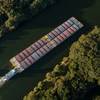The U.S. has the most stringent, comprehensive marine pollution laws of any country on the planet. The last 30 years have marked an evolution from little legal enforcement to strict liability for marine pollution. One company, WQIS, a provider of marine pollution liability insurance in the U.S., celebrates its 30th anniversary this year.
Two events proved pivotal in developing the United States' liability enforcement of marine pollution laws. In 1967, the Torrey Canyon spill off the Scilly Isles in England provided some of the most shocking images ever seen in marine pollution cleanup. Faced with an overwhelming spill and the inability to contain it, Royal Air Force fighter planes dropped napalm bombs in an effort to burn off the oil and sink the ship. This spill was an unmitigated disaster, as over 200 sq. miles of sea and 90 miles of coastline were contaminated.
Two years later, a blowout from an oil platform off Santa Barbara, California created another serious spill. The lack of marine pollution laws left residents in the affected area holding the bag for cleanup costs. These events led Congress to enact the Water Quality Improvement Act of 1970, which forever changed the marine community. For the first time, strict liability was enforced to cover cleanup costs for any spill. In short, if you spilled oil, you had to pay for cleanup. Previously, vessel owners were only liable if the spill was an intentional action or involved gross negligence.
The Water Quality Improvement Act of 1970 also created the original Certificate of Financial Responsibility (COFR) system whereby the owner and/or operator had to demonstrate that they could pay for a prescribed amount of the cleanup costs. In 1970, the maximum amount was $14 million, which is about $60 million in today's dollars. Without this certificate, vessels over 300 GRT (gross registered tons) carrying oil would not be allowed to navigate.
Leaders in the insurance community had participated with Congress in the creation of the Water Quality Improvement Act of 1970. All recognized the need to protect the nation's coastal areas and inland waterways. However, the insurance community was deeply concerned about how best to serve and protect vessel owners and operators. Many recognized that marine pollution liability involved more than just insurance payouts. This was a brand new area, requiring serious expertise in vessel risk assessment, sizable guarantees and most importantly, the responsibility for cleanup management.
One man, Mr. Francis A. Lewis, a leader of the marine insurance community along with many other U.S. insurers, understood that the marine community would be best served by housing marine pollution expertise under one roof with many leading insurance companies participating as subscribers. In 1971, through the leadership of Mr. Lewis, who became the company's first chairman, the Water Quality Insurance Syndicate, WQIS opened its doors for business.
For the first time, vessels owners could be protected for cleanup costs. A WQIS policy would be issued through WQIS on behalf of the subscribing members. The original WQIS Subscribers included 27 of the largest insurers in the U.S., making WQIS one of the largest financial institutions in the world. The WQIS Subscribers share their percentages of a policy to cover the entire 100 percent.
In essence, WQIS could be considered a fully functioning branch office of every member of the syndicate, located conveniently in the same place. WQIS would have no profit or loss, as all would be passed through to the members quarterly. For most of WQIS' 30-year history, WQIS would be the only fixed premium domestic carrier in the U.S.
Like our national environmental policies, the evolution of WQIS is best described as growing from providing the minimum protection required to providing the broadest, best possible coverage available.
In 1971, WQIS covered cleanup costs only. In 1972 the policy was amended to comply with the requirements of the Federal Water Pollution Control Act Amendments. In 1976, WQIS started covering third party damages and civil penalties in addition to cleanup costs. With the passage of the Clean Water Act in 1977, WQIS initiated an additional limit increase for vessel liability. In 1980, in concert with the Comprehensive Environmental Response, Compensation, and Liability Act (CERCLA), WQIS added coverage for hazardous substance cleanup and natural resource damage.
The Exxon Valdez spill of 1989 radically altered the nation's consciousness toward protecting the environment. Embracing the will of the American public, Congress responded with the most stringent marine pollution liability legislation in the history of man. Wildly derided at the time by the international maritime community for its draconian clean-up requirements and heavy liability measures, the Oil Pollution Act of 1990 (OPA 90) has increasingly become a model for the world. Since its implementation, U.S. waters have improved dramatically in water quality and fewer major spills have occurred. Other countries have not faired as well and what was once thought too severe is now on its way to becoming a world standard.
WQIS embraced the OPA 90 requirements and expanded its coverage to serve the marine community. In 1993, under the leadership of new President Richard H. Hobbie III, WQIS expanded its response capability to deal with a spill. "Post-Exxon," said Hobbie, "It became obvious that if companies didn't have an experienced spill management group, they would fail in meeting the strict cleanup requirements of OPA 90."
Hobbie's answer, like the formation of WQIS, was to encourage a group of the best spill response experts in the U.S. to join together and form what today is MPRG, the Maritime Pollution Response Group. MPRG became WQIS' exclusive response team in the field. The experienced team at MPRG has handled more spills than any other organization, excluding the U.S. Coast Guard.
In 1998, WQIS continued to broaden its coverage by adding hazardous substance coverage for third party damages and non-hazardous substance coverage.
In 2000, WQIS strengthened its commitment to vessel owners and operators by offering a Criminal Defense, Fines and Penalty Endorsement.
WQIS has responded to more spills in the U.S. than any other insurer and has participated in some of the largest claims in U.S. history. For example, WQIS responded to events such as the Morris J. Berman in Puerto Rico, the North Cape barge grounding in Rhode Island, and the Buffalo 292 barge spill in Galveston, Texas. In these three events, WQIS payouts ranged from $3 million of the $18 million Buffalo 292 response costs to $23 million of the $83.5 million settlement for the Morris J. Berman event.
WQIS' exclusive spill response team, MPRG, has increased in size and pioneered enhanced spill management techniques to remain the best spill response organization in existence. Through Greenfish Software, MPRG has created sophisticated tracking and monitoring software that helps MPRG efficiently manage a spill and keep accurate accounting of costs. In addition to improving spill response, this software has proven effective in expediting claims.
Through it all, WQIS has come through in protecting the environment and the vessel owners and operators. "They are truly committed to the environment and have an exceptional track record for working to minimize damage when a spill occurs," says Ms. Christina Motoyoshi, Executive Director of Tri-State Bird Rescue & Research, Inc. of Newark, DE.
WQIS has continued to provide financial safety and stability for its assureds. In fact, WQIS has not raised rates since 1995 and continues to offer COFR guarantees for free. Policyholders are secure in knowing that some $25 billion backs a WQIS policy through subscribing members.
WQIS has met this 30th anniversary year with renewed vigor to make the organization even better. "WQIS is dedicated to providing the broadest coverage in marine pollution liability and creating the most responsive organization to serve the needs of our clients," says Hobbie. Demonstrating this commitment to be even better, WQIS has already implemented some significant changes with more to come.
Responding to requests from subscribers, brokers, assureds, and the government, in January 2001, WQIS doubled its optional limit available on oil spills to $10,000,000 for all vessels and increased its overall limit for the largest vessels to $34,100,000. The increase in available limit offers greater flexibility for the assureds to get the increased coverage they want and allows MPRG to stay with a spill cleanup longer before the excess market takes over or a spill is federalized. WQIS is also now providing coverage worldwide on a selective basis.
Recognizing the international precedents established with the Erika spill in France and the Berman in Puerto Rico in which cargo owners were held liable for a spill, WQIS now offers cargo owners liability protection. WQIS has also dedicated itself to improving service for brokers and assureds. Over the past year, WQIS has reduced turnaround time on quotes by 75%. "People are amazed at how much we've done to improve service," says Russ Brown, Underwriting Manager. "Turnaround time has dropped to among the shortest response times in the industry."
To assist brokers with the complexities of writing marine pollution, WQIS is launching a new website, wqis.com, with several powerful broker tools. For the first time, through an interactive vessel directory, brokers will be able to enter the type of vessel and learn of the typical and optional coverages available for their client.
Sponsored Content
Innovative Hull Maintenance: Profitable & Green

December 2024
 Read the Magazine
Read the Magazine

 Read the Magazine
Read the Magazine
This issue sponsored by:

Propulsion Choices begin with Fuel and End with Politics
Subscribe for
Maritime Reporter E-News
Maritime Reporter E-News is the maritime industry's largest circulation and most authoritative ENews Service, delivered to your Email five times per week










